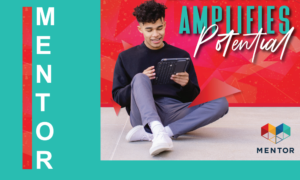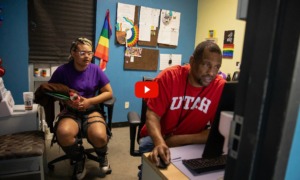Innovation Research & Training (iRT)
Durham, NC
The Connected Scholars program utilizes the old adage “Who you know is as important as what you know” to improve college transition experiences and graduation rates. In fact, many colleges struggle with low retention rates, in part, because students don’t feel connected to the faculty and staff on campus. According to a recent Gallup Poll, only 27% of graduates felt that their professors cared about them as a person and only 22% said they had a mentor who encouraged them to pursue their goals and dreams. These low feelings of connection and belonging occur in spite of the proliferation of programs offered to high school, summer transition, and college students designed to help students adjust to college.
A growing body of research shows that networks of relationships are critical for college and career success. For instance, a family’s socioeconomic status is a better predictor of graduating from college than a student’s academic achievement. Two examples of advantages that youth from affluent families have over their more economically disadvantaged peers are parents with much broader social networks and access to a wider range of informal mentors.
While well intended, the common approach of assigning college students to a formal advisor has had limited impact and reaches only a small fraction of the students who could benefit from this type of close, supportive relationship on campus. Unfortunately, first generation college students are often the least likely group of students to take advantage of such services due to the unfamiliarity or discomfort they may feel in requesting the help or support of staff or faculty, despite the fact that these types of services could greatly benefit them.
The Connected Scholars program takes a different and novel approach to building connections that is grounded in the concept that relationship-building and networking skills can be taught and learned, and that these skills can have a positive and profound lifelong impact on a student’s life. In addition to developing these skills, the program addresses some of students’ internalized negative beliefs that may act as barriers to help seeking and networking such as: asking for help indicates weakness or incompetence; they feel they don’t know how to do network successfully; or they feel too shy to approach strangers or people they don’t know well. In addition, many students are surprised when they learn how valuable it can be to have a large network that includes both strong and weak relationships with people who can provide them with different types of support. They don’t realize that oftentimes, even people who don’t know a student very well may be very willing to be helpful, and that these relationships can grow and strengthen over time.
The main goal of the Connected Scholars program is to help students understand the value of networks and mentoring relationships as well as develop the knowledge, attitudes, and skills necessary to locate and recruit potential mentors to help them achieve their academic, career, and life goals. Core topics included in the program are having students: identify their goals and develop a plan to achieve them that involves the help of others; map their current relationship networks; learn and practice methods for coping with and overcoming challenges to networking; identify, locate, initiate, and develop relationships with potential mentors; learn the core commitments of mentees for building potential mentoring relationships; and learn the tools and skills needed for developing and maintaining networking relationships. After many opportunities across the lessons to observe and practice new networking skills with the instructor and their peers, the program culminates in an actual networking event where students can invite potential mentors to attend. The program has been taught to high school seniors, rising college students, and current college students either as a workshop series or as a one-credit college course.
Initial evaluations of the program are very promising: students increased willingness and skills needed to seek support, reduced help-seeking avoidance behaviors, increased intent to connect with professors and staff, and developed closer relationships with their instructors. Students deeply valued how the program changed them. For example, one student said: “Before, I wasn’t a fan of asking like strangers for help….because of that workshop, it’s kind of changed my plan, that whenever you know somebody can help you, to always pursue them and get that help from them.”
The Connected Scholars program has the potential to increase student retention, grades, and graduation rates, particularly of minority, first-generation, and low-income students. For more information, go to www.connectedscholarsprogram.com.
Dr. Janis Kupersmidt is a Senior Research Scientist at iRT and Mentoring Central – the leading provider of evidence-based training about mentoring worldwide. Go to www.mentoringcentral.net to learn more.































